Craniotomy is a preliminary surgical procedure necessarily performed to access the brain and proceed with further operations. It involves the cutting and opening of a portion of the skull in order to have access the brain. It is performed either in case of severe neurological or cerebral anomaly, or in case of traumatic as well as accidental injuries. Craniotomy is also performed to remove lodged foreign objects like iron rods, bullets, nails, etc.
The surgical removal of a bone flap or a portion of the skull to perform necessary operation on the brain is known as craniotomy. Post-operation, the bone flap is however fixed in position with the help of metal screws. Craniotomy involves carving out minute incisions or burrholes as well as significant incision known as keyholes to carry out necessary functions. The entire procedure is guided by endoscopes, stereostatic framing, as well as computer based imaging that helps the surgeons to:
Evaluation for ideal candidacy for craniotomy surgery is primarily important. The surgeons shall decide an ideal candidate if the individual:
Craniotomy is mostly performed to treat or remove brain tumors (malignant or benign). An average brain tumor surgery cost may range from $20,000 to $28,000. Apart from tumors, the surgery is performed for a number of other reasons, depending on which, craniotomy cost may range from $8000 to $20000. It may hinge on:
Treatment cost
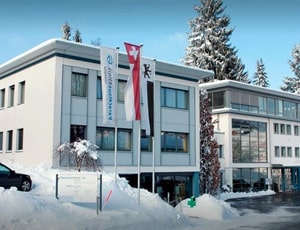
Apart from in-detail treatment procedures available, Paracelsus Clinic located in Lustmuhle, Switzerland has a wide variety of facilities available for International Patients. Some of the facilities which are provided by them are Accommodation, Airport Transfer, Choice of Meals, Interpreter, SIM, TV inside room. Also listed below are some of the most prominent infrastructural details:

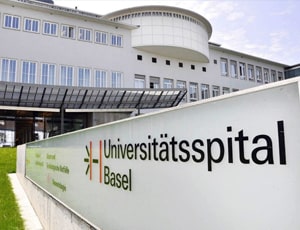
University Hospital located in Basel, Switzerland is accredited by ISO. Also listed below are some of the most prominent infrastructural details:
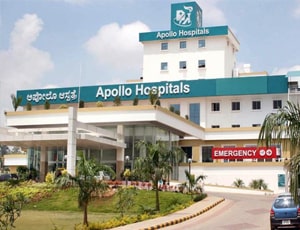
Types of Craniotomy in Apollo Hospitals Bannerghatta and its associated cost
| Treatment Option | Approximate Cost Range (USD) | Approximate Cost Range (INR) |
|---|---|---|
| Overall Craniotomy Surgery | 5543 - 11464 | 454073 - 927892 |
| Extended Bifrontal Craniotomy | 3420 - 9131 | 272128 - 726759 |
| Supra-Orbital Craniotomy | 3946 - 8570 | 327598 - 687723 |
| Retro Sigmoid Craniotomy | 5150 - 9943 | 421737 - 822192 |
| Orbitozygomatic Craniotomy | 5124 - 10812 | 407867 - 892134 |
| Translabyrinthine Craniotomy | 5062 - 10587 | 422752 - 872784 |
| Pterional Craniotomy | 4510 - 9719 | 373788 - 791539 |
| Suboccipital Craniotomy | 4539 - 9668 | 376864 - 772623 |
DOCTORS IN 13 SPECIALITIES
FACILITIES & AMENITIES
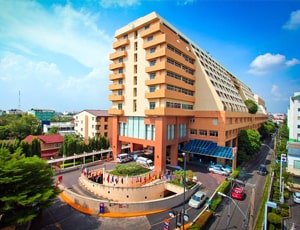
Types of Craniotomy in Vejthani Hospital and its associated cost
| Treatment Option | Approximate Cost Range (USD) | Approximate Cost Range (THB) |
|---|---|---|
| Overall Craniotomy Surgery | 12519 - 22082 | 444632 - 785198 |
| Extended Bifrontal Craniotomy | 9777 - 25243 | 349335 - 894751 |
| Supra-Orbital Craniotomy | 10340 - 22330 | 379840 - 811689 |
| Retro Sigmoid Craniotomy | 12205 - 24929 | 443367 - 893419 |
| Orbitozygomatic Craniotomy | 12387 - 24295 | 443263 - 892229 |
| Translabyrinthine Craniotomy | 12140 - 23598 | 433061 - 838809 |
| Pterional Craniotomy | 10954 - 22696 | 390499 - 796185 |
| Suboccipital Craniotomy | 11026 - 21049 | 404888 - 758466 |
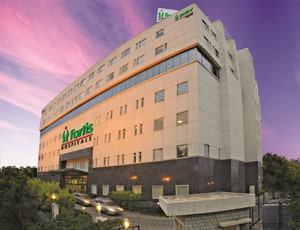
Types of Craniotomy in Fortis Hospital and its associated cost
| Treatment Option | Approximate Cost Range (USD) | Approximate Cost Range (INR) |
|---|---|---|
| Overall Craniotomy Surgery | 5081 - 10171 | 415726 - 836000 |
| Extended Bifrontal Craniotomy | 3052 - 8160 | 249323 - 664480 |
| Supra-Orbital Craniotomy | 3551 - 7648 | 291775 - 623075 |
| Retro Sigmoid Craniotomy | 4571 - 9142 | 375441 - 750082 |
| Orbitozygomatic Craniotomy | 4565 - 9605 | 375756 - 789783 |
| Translabyrinthine Craniotomy | 4583 - 9666 | 375858 - 790835 |
| Pterional Craniotomy | 4075 - 8620 | 332618 - 706542 |
| Suboccipital Craniotomy | 4066 - 8658 | 334240 - 704040 |
DOCTORS IN 12 SPECIALITIES
FACILITIES & AMENITIES
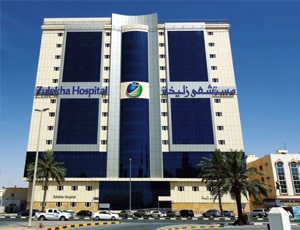
Types of Craniotomy in Zulekha Hospital Sharjah and its associated cost
| Treatment Option | Approximate Cost Range (USD) | Approximate Cost Range (AED) |
|---|---|---|
| Overall Craniotomy Surgery | 15091 - 28645 | 56626 - 102381 |
| Extended Bifrontal Craniotomy | 11093 - 27286 | 39272 - 101823 |
| Supra-Orbital Craniotomy | 11828 - 24608 | 42422 - 89575 |
| Retro Sigmoid Craniotomy | 13546 - 27010 | 48994 - 97772 |
| Orbitozygomatic Craniotomy | 13439 - 26931 | 50769 - 98755 |
| Translabyrinthine Craniotomy | 13784 - 28077 | 50166 - 103627 |
| Pterional Craniotomy | 12280 - 26860 | 45411 - 97895 |
| Suboccipital Craniotomy | 12546 - 25020 | 44467 - 91563 |
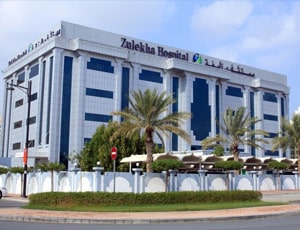
Types of Craniotomy in Zulekha Hospital Dubai and its associated cost
| Treatment Option | Approximate Cost Range (USD) | Approximate Cost Range (AED) |
|---|---|---|
| Overall Craniotomy Surgery | 15425 - 28706 | 56346 - 102603 |
| Extended Bifrontal Craniotomy | 10721 - 27813 | 39598 - 98383 |
| Supra-Orbital Craniotomy | 11542 - 24304 | 41750 - 91089 |
| Retro Sigmoid Craniotomy | 13721 - 27308 | 50486 - 101049 |
| Orbitozygomatic Craniotomy | 13459 - 27790 | 50799 - 98613 |
| Translabyrinthine Craniotomy | 13381 - 28610 | 49841 - 105383 |
| Pterional Craniotomy | 12423 - 26342 | 44412 - 100853 |
| Suboccipital Craniotomy | 12471 - 25001 | 45638 - 95171 |
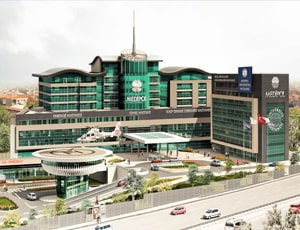
Types of Craniotomy in Medipol Mega University Hospital and its associated cost
| Treatment Option | Approximate Cost Range (USD) | Approximate Cost Range (TRY) |
|---|---|---|
| Overall Craniotomy Surgery | 14880 - 18800 | 444743 - 576507 |
| Extended Bifrontal Craniotomy | 9016 - 19459 | 276484 - 567098 |
| Supra-Orbital Craniotomy | 9437 - 16652 | 288885 - 518413 |
| Retro Sigmoid Craniotomy | 11277 - 19098 | 342493 - 586204 |
| Orbitozygomatic Craniotomy | 11120 - 18511 | 345666 - 568457 |
| Translabyrinthine Craniotomy | 11199 - 18000 | 343764 - 536589 |
| Pterional Craniotomy | 10069 - 16851 | 304753 - 518804 |
| Suboccipital Craniotomy | 10137 - 15761 | 299728 - 479347 |
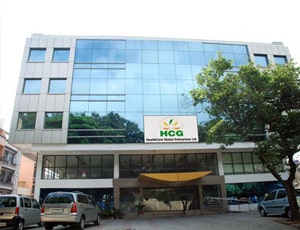
Types of Craniotomy in HCG Kalinga Rao Road and its associated cost
| Treatment Option | Approximate Cost Range (USD) | Approximate Cost Range (INR) |
|---|---|---|
| Overall Craniotomy Surgery | 5063 - 10177 | 414941 - 832322 |
| Extended Bifrontal Craniotomy | 3054 - 8142 | 250334 - 664428 |
| Supra-Orbital Craniotomy | 3541 - 7625 | 292149 - 625311 |
| Retro Sigmoid Craniotomy | 4576 - 9121 | 375111 - 751402 |
| Orbitozygomatic Craniotomy | 4556 - 9687 | 374373 - 794277 |
| Translabyrinthine Craniotomy | 4548 - 9602 | 376207 - 792385 |
| Pterional Craniotomy | 4074 - 8667 | 334165 - 704293 |
| Suboccipital Craniotomy | 4044 - 8621 | 331728 - 704676 |

Types of Craniotomy in Sarvodaya Hospital and Research Centre and its associated cost
| Treatment Option | Approximate Cost Range (USD) | Approximate Cost Range (INR) |
|---|---|---|
| Overall Craniotomy Surgery | 5081 - 10138 | 416685 - 834850 |
| Extended Bifrontal Craniotomy | 3049 - 8133 | 249405 - 667436 |
| Supra-Orbital Craniotomy | 3564 - 7620 | 290516 - 623243 |
| Retro Sigmoid Craniotomy | 4561 - 9102 | 375594 - 750921 |
| Orbitozygomatic Craniotomy | 4567 - 9680 | 375393 - 792095 |
| Translabyrinthine Craniotomy | 4570 - 9639 | 374279 - 790088 |
| Pterional Craniotomy | 4070 - 8601 | 334168 - 707033 |
| Suboccipital Craniotomy | 4043 - 8643 | 333836 - 706407 |
DOCTORS IN 14 SPECIALITIES
FACILITIES & AMENITIES
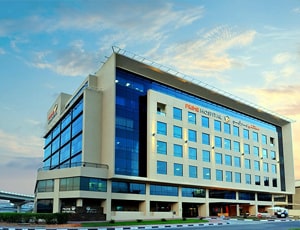
Types of Craniotomy in Prime Hospital and its associated cost
| Treatment Option | Approximate Cost Range (USD) | Approximate Cost Range (AED) |
|---|---|---|
| Overall Craniotomy Surgery | 15031 - 27737 | 56263 - 106132 |
| Extended Bifrontal Craniotomy | 10687 - 27232 | 40604 - 100516 |
| Supra-Orbital Craniotomy | 11543 - 23989 | 42629 - 89043 |
| Retro Sigmoid Craniotomy | 13544 - 26654 | 50437 - 100508 |
| Orbitozygomatic Craniotomy | 13884 - 26799 | 50607 - 101327 |
| Translabyrinthine Craniotomy | 13820 - 28312 | 48929 - 104010 |
| Pterional Craniotomy | 12161 - 27423 | 44534 - 98491 |
| Suboccipital Craniotomy | 12333 - 25804 | 46174 - 92732 |
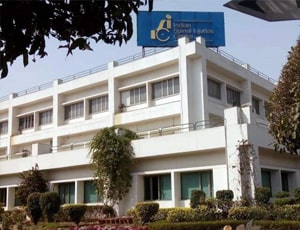
Types of Craniotomy in Indian Spinal Injuries Centre and its associated cost
| Treatment Option | Approximate Cost Range (USD) | Approximate Cost Range (INR) |
|---|---|---|
| Overall Craniotomy Surgery | 5079 - 10103 | 417048 - 834640 |
| Extended Bifrontal Craniotomy | 3050 - 8158 | 250523 - 667754 |
| Supra-Orbital Craniotomy | 3564 - 7641 | 291571 - 621395 |
| Retro Sigmoid Craniotomy | 4586 - 9142 | 375619 - 747112 |
| Orbitozygomatic Craniotomy | 4585 - 9604 | 375134 - 788578 |
| Translabyrinthine Craniotomy | 4546 - 9617 | 376296 - 791477 |
| Pterional Craniotomy | 4064 - 8625 | 334310 - 710524 |
| Suboccipital Craniotomy | 4063 - 8637 | 331861 - 710414 |
DOCTORS IN 2 SPECIALITIES
FACILITIES & AMENITIES
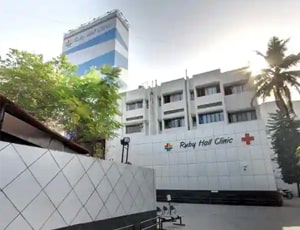
Types of Craniotomy in Ruby Hall Clinic and its associated cost
| Treatment Option | Approximate Cost Range (USD) | Approximate Cost Range (INR) |
|---|---|---|
| Overall Craniotomy Surgery | 4612 - 9482 | 387305 - 770753 |
| Extended Bifrontal Craniotomy | 2822 - 7522 | 231021 - 605696 |
| Supra-Orbital Craniotomy | 3279 - 7065 | 266437 - 582108 |
| Retro Sigmoid Craniotomy | 4200 - 8369 | 340624 - 697371 |
| Orbitozygomatic Craniotomy | 4234 - 8913 | 344902 - 734526 |
| Translabyrinthine Craniotomy | 4198 - 8830 | 345093 - 734010 |
| Pterional Craniotomy | 3694 - 7934 | 304608 - 648580 |
| Suboccipital Craniotomy | 3792 - 8074 | 310705 - 643718 |
DOCTORS IN 13 SPECIALITIES
FACILITIES & AMENITIES
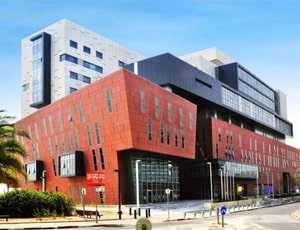
Assuta Hospital located in Tel-Aviv, Israel is accredited by JCI. Also listed below are some of the most prominent infrastructural details:
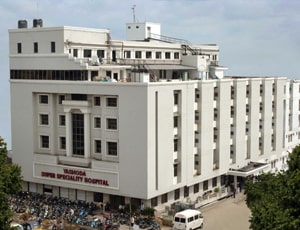
Types of Craniotomy in Yashoda Hospital, Malakpet and its associated cost
| Treatment Option | Approximate Cost Range (USD) | Approximate Cost Range (INR) |
|---|---|---|
| Overall Craniotomy Surgery | 5096 - 10152 | 418177 - 829908 |
| Extended Bifrontal Craniotomy | 3034 - 8095 | 248517 - 663605 |
| Supra-Orbital Craniotomy | 3548 - 7620 | 290650 - 625496 |
| Retro Sigmoid Craniotomy | 4546 - 9122 | 375070 - 747771 |
| Orbitozygomatic Craniotomy | 4578 - 9611 | 373360 - 792346 |
| Translabyrinthine Craniotomy | 4584 - 9638 | 374289 - 791928 |
| Pterional Craniotomy | 4041 - 8655 | 331808 - 704992 |
| Suboccipital Craniotomy | 4047 - 8628 | 333238 - 707459 |
DOCTORS IN 10 SPECIALITIES
FACILITIES & AMENITIES
Craniotomy surgery is one of the most common types of brain surgery conducted to treat a brain tumor. It mainly aims at removing a lesion, tumor, or a blood clot in the brain by opening a flap above the brain to access the targeted area. This flap is removed on a temporary basis and again put in place when the surgery is done. Around 90 percent of the cases of brain tumors are diagnosed in adults aged between 55 and 65. Among children, a brain tumor is diagnosed within an age range of 3 to 12 years.
Craniotomy procedures are conducted with the help of magnetic resonance imaging (MRI) scans to reach the location precisely in the brain that requires treatment. A three-dimensional image for the same is achieved of the brain in conjunction with localizing frames and computers to view a tumor properly. A clear distinction is made between abnormal or tumor tissue and normal healthy tissue and to access the exact location of the abnormal tissue.
In a minimally invasive craniotomy procedure, a burr hole or a keyhole may be created to access the brain to fulfill the following purposes:
When there are complex craniotomies involved, the procedure may be referred to as a skull base surgery. In this kind of surgery, a small portion of the skull is removed from the bottom of the brain. This is the region where delicate arteries, veins, and cranial nerves exit the skull. Complicated planning is done to plan such craniotomies and understand the location of the lesions. This type of approach is usually employed for:
Primary brain tumors are much less common than secondary brain tumors. Primary ones are found to originate very close to the brain itself or in the tissues very close to it, such as the covering membranes of the brain, including the meninges, cranial nerves, pineal, or pituitary gland. It begins with normal cells, which at a later period undergoes some mutational errors in their DNA. The mutation triggers cells to grow and divide at a very high rate while healthy cells keep dying around it. This results in a mass of abnormal cells which gives rise to a tumor. Unlike primary tumors, the secondary tumors begin as cancer elsewhere and spread to the brain.
No matter what the goal of the surgery is, it is best to ensure that the incision is made to address the intracranial lesion keeping some principles in mind. A wide variety of intracranial processes can be done via a craniotomy with a different variety of incisions. Some of these variations include frontal craniotomy, pterional craniotomy, temporal craniotomy, decompression craniectomy, and suboccipital craniotomy.
Ask your healthcare adviser for the best multiple options and choose the one that meets your expectations
Different hospitals have different pricing policy when it comes to the cost of Craniotomy in Switzerland. The cost quoted by some of the best hospitals for Craniotomy in Switzerland generally covers the pre-surgery investigations of the patient. The Craniotomy procedure in Switzerland includes the fees of the surgeon, hospitalization and anesthesia as well. There are many things that may increase the cost of Craniotomy in Switzerland, including prolonged hospital stay and complications after the procedure.
There are many hospitals that perform Craniotomy in Switzerland. For quick reference, the following are some of the leading hospitals for Craniotomy in Switzerland:
After discharge from the hospital, the patient has to stay for another 28 days in the country for complete recovery. This duration of stay is recommended to complete all the necessary follow-ups and control tests to ensure that the surgery was successful.
Apart from the Craniotomy cost, there are a few other daily charges that the patient may have to pay. These are the charges for daily meals and accommodation outside the hospital. The per day extra expenses in Switzerland per person are about USD 50 per person.
Some of the best cities in Switzerland which offer Craniotomy are:
After the Craniotomy takes place, the average duration of stay at the hospital is about 5 days. The doctors team review the patient's recovery during this time with the help of blood tests and imaging scans. Once they feel that everything is on track, the patient is discharged.
There are more than 2 hospitals that offer Craniotomy in Switzerland. The above listed hospitals are approved to perform the surgery and have proper infrastructure to handle Craniotomy patients. Additionally, these hospitals are known to comply with the international standards as well as local legal requirements for the treatment of patients.
Some of the best medical specialists for Craniotomy in Switzerland are: